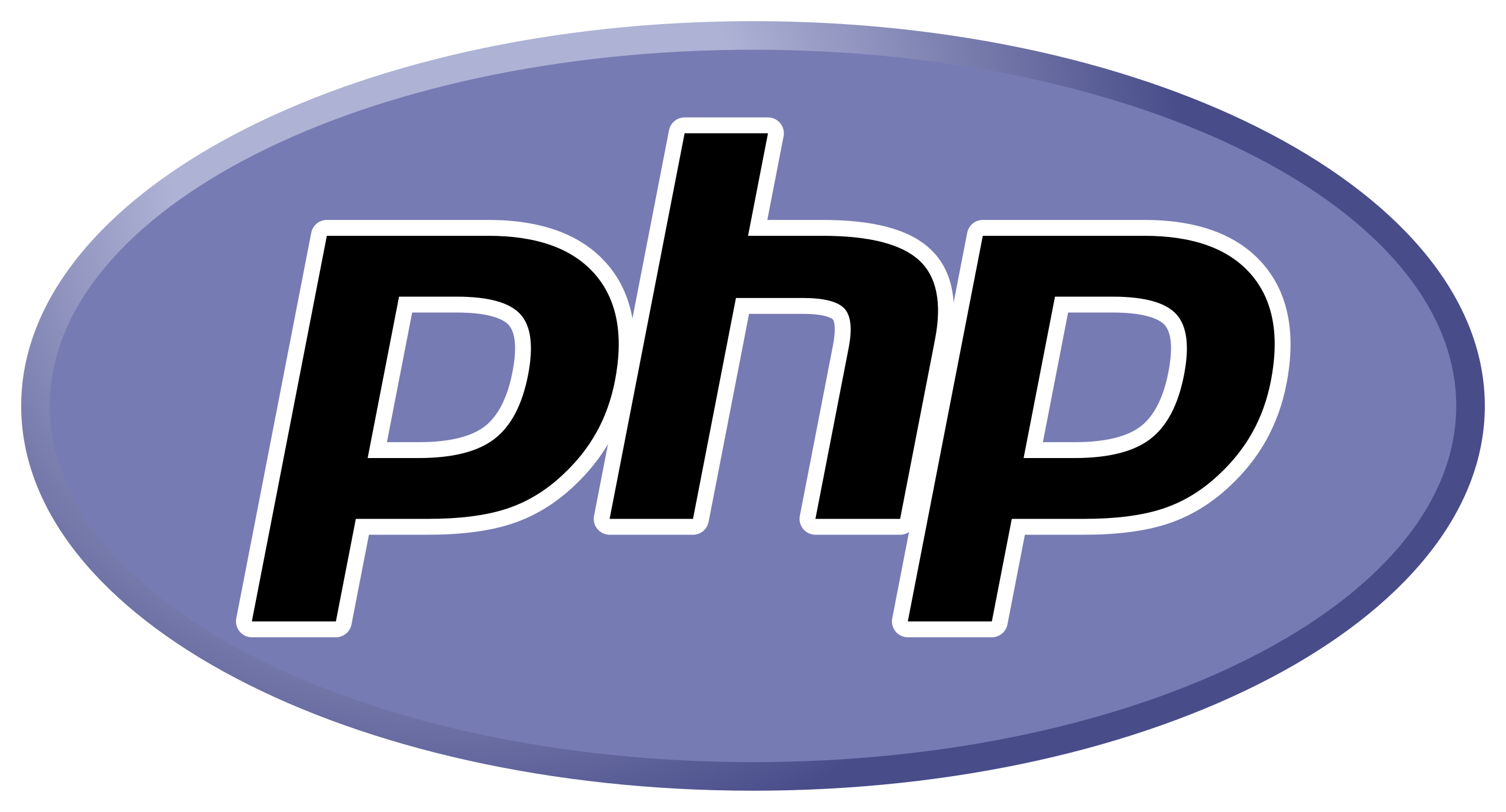SHARE
What is Laravel? An Overview in 2025

Contents
Contents
Introduction
In recent years, the app and web development process has become much more reachable to a wider audience of hobbyists and enthusiasts.
Even beginners have embraced do-it-yourself products like WordPress or low-code environments for developing web apps.
For more advanced developers, a hefty number of tools exist to improve the web application design and coding process.
But if a web-based project is going to go further than basic code created by an automated system, some big decisions will need to be made. For example, before you start writing code, you must decide on the programming language that will be used by an app or web project.
One popular option is PHP. And if PHP is the winning language – which it often is when it comes to web apps – then the next step is to choose one of the many modern PHP frameworks that will allow you to build robust applications and websites.
And if web developers choose PHP, they will often select the Laravel framework as a means to make the building process more streamlined.
This article will discuss the answer to “What is Laravel?” and why web developers often turn to the Laravel framework. Let’s begin by getting some definitions out of the way.
What is a Backend Web Framework?
A backend web framework is a software tool that provides developers with a pre-built set of libraries, components, and tools for building web applications.
These frameworks help to speed up development time and provide a solid foundation for building secure, scalable, and efficient web applications.
Backend web frameworks typically provide features such as routing, database management, security, and templating, among others.
These features allow developers to focus on building the core business logic of their applications rather than worrying about the underlying infrastructure or boilerplate code that is repeatedly used across a web application’s architecture.
In other words, it keeps web developers from needing to reinvent the wheel with each project.

What is PHP?
PHP is a server-side scripting language that is used to build web applications. It is one of the most widely used programming languages on the web, with over 79% of websites using PHP for their backend systems.
PHP is known for its ease of use, scalability, and extensibility. It provides developers with a wide range of built-in functions and libraries and the ability to extend the language with custom extensions.

What is Laravel?
Laravel is a free and open-source PHP framework that was first released in 2011. Taylor Otwell created Laravel to help developers build web applications using the Model-View-Controller (MVC) architectural pattern.
Laravel is known for its elegant syntax, developer-friendly approach, and rich set of features that simplify common web development tasks.
It takes advantage of many of PHP’s advanced features, such as object-oriented programming (OOP), to provide a clean and expressive syntax that makes it easy to write maintainable and extensible code.
What is Laravel Used For?
Laravel is a software tool that helps web developers build websites and web applications more easily with the PHP programming language.
It provides pre-built features and tools that simplify common tasks like the ability to manage databases, perform user authentication, and route user requests.
It’s popular among developers for its ability to help them build web applications quickly and efficiently.
Here are just a few of the use cases for this cross-platform PHP framework that Laravel developers have designed:
- E-commerce websites and online stores
- Social networking sites
- E-learning content management systems
- Enterprise-level applications like enterprise resource planning, customer relationship management, and electronic health record systems
How Popular is Laravel?
Laravel has a huge community of patrons and is trusted by many businesses for a wide range of reasons. Some of the main reasons are security, scalability, stability, and performance.
It is considered one of the most popular web development frameworks around the world. Its usage is expected to continue to increase as the demand remains steady and the community embraces and mentors new developers daily.
Advantages of the Laravel Framework
Laravel has several advantages as a PHP framework that make it a popular choice among web developers.
Take a look at just a few of these positives that a Laravel application or website can bring to your next web project.
Elegant and Expressive PHP Syntax
Laravel’s syntax is clean and expressive, making it easy for developers to write maintainable and extensible code.
When web developers say that PHP and the Laravel framework are elegant and expressive, it means that the code itself is easy to understand by looking at it.
This makes it easier to follow the logic of a code base and can’t reduce coding and debugging times.
The framework also provides a range of built-in features and functions that simplify common web development tasks, such as routing, authentication, and database management.
Developer-Friendly
Laravel is designed with the developer in mind. It provides a range of tools and features that simplify the development process, such as an intuitive command-line interface (CLI) and built-in testing tools like unit tests that ensure small pieces of code are working as intended.
The powerful Artisan command line interface provides some nice abilities to the development environment.
It gives web developers powers like publishing package assets, managing database migrations, and generating boilerplate code.
The Artisan command line utility allows the developer to create MVC files and issue their own commands to adjust the web development process to their needs.
MVC Support and Architecture
Laravel uses the Model-View-Controller (MVC) architectural pattern, which helps to separate business logic, what the software does, from presentation logic, or how the software looks.
An MVC architecture makes it easier to maintain and extend applications with additional code libraries over time. It brings order and consistency to unstructured code and manages data more efficiently.
Another aspect of the MVC architecture is how it lets the programmer interact with views through a powerful template engine.
The Laravel Blade template engine allows the developer to produce HTML-based designs and themes. It allows for connecting data models, processing the source templates, and directing the output to a text file or stream.
Security
Laravel provides several security features out of the box, such as built-in encryption and hashing, protection against cross-site scripting (XSS) and cross-site request forgery (CSRF) attacks, and more.
Community Support
Laravel has a large and active community of developers who contribute to the framework’s development, documentation, and support.
This means that developers can find a wealth of resources and support online, including tutorials, forums, and packages.
Packages and Libraries
Laravel has a wide range of packages and libraries available through its package dependency manager, Composer.
These packages and libraries help to extend the functionality of the framework and make it easier to build a more complex Laravel application.
Here is just one example of official packages that extend the framework and give Laravel developers increased reach when it comes to user authentication.
- Laravel Breeze – A simple, minimal implementation of all of Laravel’s authentication features, including login, registration, password resets, email verification, and password confirmation.
- Laravel Jetstream – A robust starter kit that creates a modern user interface with support for two-factor authentication, managing an existing session in the browser, and profile management.
- Laravel Sanctum – A simple way to authenticate single-page applications with cookie-based support and API tokens.
Another useful feature of the packaging system called bundles allows users to redistribute code so that other users don’t have to repeat the same work.
Disadvantages of the Laravel Framework
While Laravel has many advantages, there are also some disadvantages to consider.
Learning Curve
Laravel has a steep learning curve for developers who are new to the framework. This is because the framework has a lot of features and concepts to learn, and it can take some time to become proficient with them.
Performance
A Laravel web application’s performance can be slower than some other PHP frameworks, especially when handling large amounts of data or traffic.
However, there are several optimization techniques that developers can use to improve the framework’s performance.
Upgrades
Upgrading to new versions of Laravel can be challenging, especially if the application uses a lot of third-party Laravel packages and libraries.
This is because new versions of the framework can introduce breaking changes that require code updates.
Conclusion
Laravel is a popular PHP web framework that provides developers with a range of tools and features for building scalable, secure, and efficient web applications.
It has many advantages, such as an elegant syntax, a developer-friendly approach, and a large and active community.
However, there are also some disadvantages to consider, such as a steep learning curve and potential performance issues.
Overall, Laravel is a powerful tool for web development that can help developers build high-quality web applications quickly and efficiently.
Frequently Asked Questions
What is a web framework?
A web framework is a set of resources and tools for software developers and website authors to build and manage web apps, services, and sites.
A framework often automates repetitive web development tasks which saves the developer time and energy so they don’t have to repeat their or others’ work when creating a new web resource.
What is a PHP framework?
A PHP framework is built on the open-source programming language PHP. It provides a development environment and libraries of common functions which reduce the amount of original code developers will need to write from scratch.
Laravel is one example of a popular PHP framework. Other examples include CodeIgniter, Symfony, CakePHP, and Yii.
Is Laravel good for web development?
Laravel is an excellent choice for a web development project. Laravel’s modular packaging system provides libraries that can extend the functionality of a web application and have built-in security measures.
Is Laravel good for mobile development?
Laravel is well-suited to any type of business application and can be used to develop a mobile application’s code on the backend.
Are there a lot of Laravel web developers?
There is a large community of Laravel developers. It is the most popular PHP framework and the PHP language is used in the majority of web resources in one way or another.
The vibrant and active community of fellow developers means that a beginner has more chances to be mentored by more experienced web authors and learn from their hard work.
How does Laravel compare to other web frameworks?
In the ever-evolving landscape of web development, Laravel stands as a prominent PHP framework, but how does it stack up against its peers? For a detailed comparison between Laravel and Node.js, a JavaScript-based environment renowned for its asynchronous, event-driven architecture. Additionally, the contrasts and strengths of Laravel compared to Ruby on Rails, a Ruby framework known for its convention over configuration principle. These comparisons shed light on the unique features, performance considerations, and suitability for different project types, helping you make an informed decision for your web development needs.
Comprehensive Web Development Services
Flatirons creates custom web development solutions tailored to your business needs.
Get the CEO's Take
Handpicked tech insights and trends from our CEO.
Comprehensive Web Development Services
Flatirons creates custom web development solutions tailored to your business needs.
Get the CEO's Take
Handpicked tech insights and trends from our CEO.

Record Information System (RIS) for Healthcare Data Management
Flatirons
Jul 02, 2025
Proof of Concept Examples: Validating Ideas in Action
Flatirons
Jun 30, 2025
Javascript Developer Salary Insights in the US
Flatirons
Jun 28, 2025
Powerful Electron Alternatives for Cross-Platform App Development
Flatirons
Jun 28, 2025
Why Is Python So Popular – Explained for Beginners
Flatirons
Jun 28, 2025
What is a White Label App?
Flatirons
Jun 28, 2025